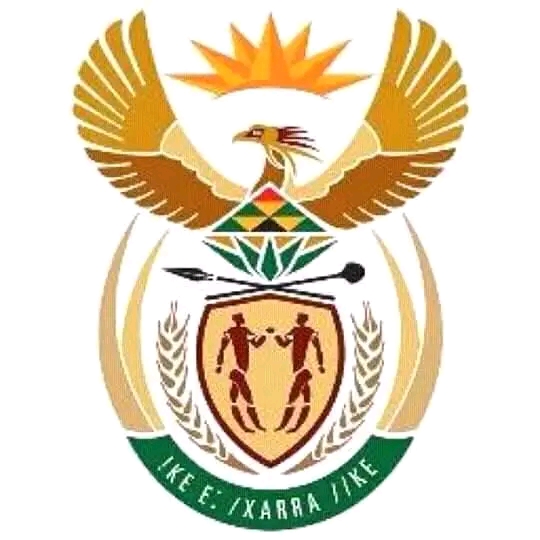
Applying to a university or TVET college in South Africa can be a complex process. There are many different steps that must be followed in order to be accepted. First, you must choose the right institution and program. Then, you must complete the application process and submit all required documents. Finally, you must wait for a response from the institution.
UNIVERSITIES:
Applying to universities in South Africa generally follows a standard procedure, although specific requirements and application fees can vary by institution. Here’s a simplified process:
1. Choose a University and Program
First, decide on the university and the program you wish to enroll in. South Africa boasts several prestigious universities like the University of Cape Town, University of Witwatersrand, Stellenbosch University, and others.
2. Check Requirements
– **Undergraduate Programs**: Typically require your National Senior Certificate (NSC) or equivalent if you’re an international student, along with meeting the specific requirements for the program you’re interested in.
– **Postgraduate Programs**: Require an undergraduate degree and sometimes work experience, depending on the program.
3. Prepare Your Application
Gather all necessary documents. This often includes academic transcripts, proof of English proficiency (for non-native speakers), personal statements, reference letters, and a copy of your passport.
4. Apply Online
Most South African universities now accept online applications. Visit the official university website to access their application portal. You will need to fill in your personal details, educational background, and upload the required documents.
5. Pay the Application Fee
Application fees vary by university and sometimes by program. As of my last update, fees could range from approximately ZAR 100 to ZAR 300 for South African residents. International students might be subject to higher fees. Here are some examples, but please check the current fees on the university’s website as they are subject to change:
– University of Cape Town: Around ZAR 200
– University of Witwatersrand: Approx. ZAR 100 for South Africans and ZAR 700 for internationals
– Stellenbosch University: Around ZAR 100
6. Follow Up and Prepare for Additional Requirements
After submitting your application, keep an eye on your email and the application portal for any updates. Some programs may require additional steps like interviews or entrance tests.
7. Acceptance and Enrollment
If your application is successful, you’ll receive an offer. You may need to pay a deposit to confirm your acceptance and secure your place.
Remember, application deadlines vary greatly among universities and programs, so it’s crucial to check these details well in advance. Also, international students will need to apply for a student visa, so it’s advisable to begin the application process as early as possible.
TVET COLLEGES:
Technical and Vocational Education and Training (TVET) Colleges in South Africa provide vocational and occupational education and training. These institutions aim to equip students with the necessary skills and knowledge to fulfill the labor market’s demand for skilled workers. They offer a range of courses that include technical, vocational, and occupational programs, often focusing on practical skills training in areas such as engineering, health, applied arts, ICT, business, and hospitality.
Applying to TVET Colleges:
1. **Choose a College and Program**
- Start by researching various TVET colleges and the programs they offer. South Africa has a network of public TVET colleges across its provinces, each with multiple campuses. There are also private colleges accredited to offer similar qualifications.
2. **Check Requirements**
- Entry requirements can vary depending on the program. Generally, you need to have completed Grade 9, 10, 11, or 12, depending on the National Qualifications Framework (NQF) level of the course you’re interested in. Some programs may have specific subject requirements or require a placement test.
3. **Prepare Your Application**
- Gather necessary documents, including your latest school results, ID document (or birth certificate if you’re under 16), and a proof of residence. Some programs may also require additional documents such as a CV or a motivational letter.
4. **Apply**
– Many TVET colleges allow you to apply online, while others may require you to apply in person. Visit the college’s official website or contact them directly to find out their preferred application method and whether they have an application fee.
– Application fees for TVET colleges, if applicable, tend to be lower than those for universities. However, these fees can vary widely between colleges and can change, so it’s important to check directly with the college for the most accurate information.
5. **Follow Up and Enrollment**
– After submitting your application, keep an eye on your email and the college’s announcements for any communication regarding your application status.
– If accepted, you will receive information on how to enroll, pay any necessary fees, and prepare for your studies.
5. Financial Assistance:
- The South African government provides financial aid to eligible students through the National Student Financial Aid Scheme (NSFAS). If you qualify, NSFAS can cover your tuition fees, accommodation, and provide allowances for books and living expenses. It’s advisable to apply to NSFAS as early as possible once their application window opens.
6. Key Points:
– TVET colleges are an excellent option for gaining practical skills and qualifications for specific job roles.
– Application processes and requirements can vary, so it’s crucial to check with the individual college.
– Financial aid is available for eligible students, making TVET education an accessible option for many South Africans.
TVET colleges play a crucial role in South Africa’s education system by providing vocational and occupational training that directly addresses the country’s skills shortages. Whether you’re a recent school leaver, seeking to upskill, or looking for a career change, TVET colleges offer a range of programs that could meet your needs.